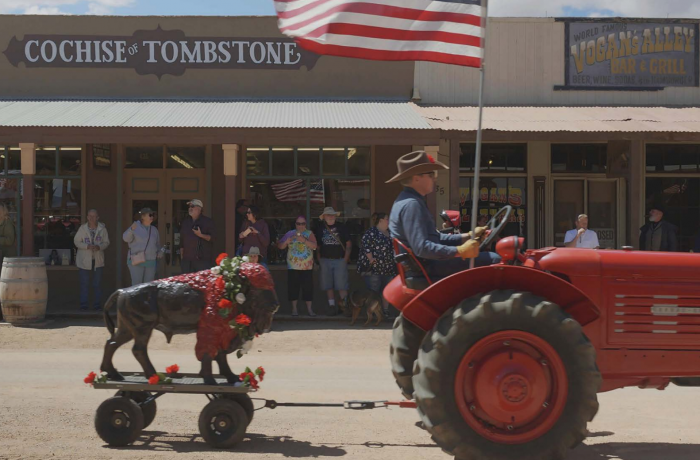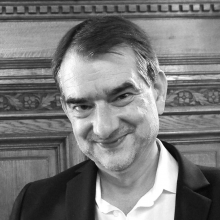
The film begins with a personal memory: Paris, the summer of 1980. The Moscow Olympics are underway. In Detroit, Ronald Reagan has just been nominated as the Republican presidential candidate. In New Hampshire, Henry Fonda is shooting his final film. Two actors sketching out two different ways of viewing the United States of America: as God’s Own Country or as a stage for social struggle.
A sharp leap backwards: Holland, 1651. A dual history of migration is taking its course: the story of a man and his family – and the history of a nation in motion. The film’s journey continues to the shores of the Mohawk River and the years of the American Revolution, to the ‘Wild West’ and the waves of racist violence in the early 20th century, to New York during the Great Depression, to Hiroshima and the Pacific front in World War II. The postwar era and its new forms of depression, the Cold War and its apocalyptic scenarios – this is also the time when the society of the spectacle finally asserts itself.
Our protagonist is now closer than ever to the role of a politician. The story comes to a close around 1976: after Watergate and the Vietnam War, during a time of confusion and hope in which the US is trying to find itself again.
Each station on this journey through the country and its times is connected to Henry Fonda– to his life and that of his forebears, to his work as an actor and his public persona, and to the movie characters he portrayed. He becomes concentrated in them — along with the country from which all of these faces arise. Considered from the vantage point of today: another time, another country. But its phantoms, no matter whether famous or nameless, are more potent than ever before.

Alexander Horwath, born in 1964 in Vienna, is a writer, curator and film historian. He was the director of the Viennale, Vienna International Film Festival, (1992–97) and the Austrian Film Museum (2002–17). He has curated the documenta 12 film programme (2007) and many other projects in the film and art world. His essays and books have addressed subjects such as Josef von Sternberg, Ruth Beckermann, Guy Debord, Austrian avant-garde cinema, film curatorship, and the American cinema of the 1960s and 70s. He is a member of the Akademie der Künste in Berlin and teaches film history at the University of Music and Performing Arts in Vienna. Henry Fonda for President (2024) is his first film.